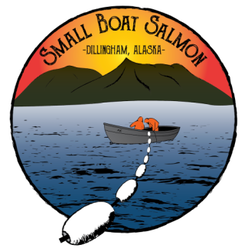The Bristol Bay Fishery
The Bristol Bay fishery is the largest, wild sockeye salmon fishery in the world. The 2019 run was the fourth largest since the Alaska Department of Fish and Game began collecting data in 1893 with a total run of over 56.5 million fish and a harvest of approximately 44.5 million fish valued at over $306.5 million, the highest value in the history of the fishery. All five species of Pacific salmon return to Bristol Bay to spawn in its rivers and lakes, including pink, chum, sockeye, coho and king. The waters of the region have long been an integral part of the state and local economies, providing thousands of sustainable jobs to Alaskans for generations. Commercial fishing-related jobs account for nearly 75 percent of local employment and fishing and the associated canneries have been the major industries in the area for many decades. In 2014 residents marked the 130th anniversary of commercial fishing in Bristol Bay.
Over the last decade, the Pebble Partnership has proposed building one of the largest open-pit mines in the world at the headwaters of some of Bristol Bay's spawning streams. With its astounding beauty and prolific salmon runs, Bristol Bay is a place of international importance. Its future is threatened by the proposed Pebble mine as well as hard rock mining on adjacent state and federal land. The Bristol Bay watershed must be put off-limits to Pebble and other large-scale mining projects. For more information see savebristolbay.org or go to the United Tribes of Bristol Bay.
Carbon offsets
Beginning in 2018 we have estimated the carbon footprint of our fish harvest and direct sales operations—based on the amount of vehicle and skiff fuel, passenger and freight air miles for transporting our fishermen and product, power consumption, and other sources. We purchase carbon offsets from the Carbonfund Foundation to compensate for the greenhouse gas impact of our operations. These offsets pay for energy efficiency, renewable energy, and carbon entrainment projects in the U.S. and other locations. See the Foundation’s website for more details.
Box Reuse or Recycle
We will contact you after the season to collect your used boxes in the Anchorage Bowl for reuse or recycle. You are welcome to bring a cooler to carry your fish home in, leaving your box behind. We regularly reuse boxes in good repair.
The Bristol Bay fishery is the largest, wild sockeye salmon fishery in the world. The 2019 run was the fourth largest since the Alaska Department of Fish and Game began collecting data in 1893 with a total run of over 56.5 million fish and a harvest of approximately 44.5 million fish valued at over $306.5 million, the highest value in the history of the fishery. All five species of Pacific salmon return to Bristol Bay to spawn in its rivers and lakes, including pink, chum, sockeye, coho and king. The waters of the region have long been an integral part of the state and local economies, providing thousands of sustainable jobs to Alaskans for generations. Commercial fishing-related jobs account for nearly 75 percent of local employment and fishing and the associated canneries have been the major industries in the area for many decades. In 2014 residents marked the 130th anniversary of commercial fishing in Bristol Bay.
Over the last decade, the Pebble Partnership has proposed building one of the largest open-pit mines in the world at the headwaters of some of Bristol Bay's spawning streams. With its astounding beauty and prolific salmon runs, Bristol Bay is a place of international importance. Its future is threatened by the proposed Pebble mine as well as hard rock mining on adjacent state and federal land. The Bristol Bay watershed must be put off-limits to Pebble and other large-scale mining projects. For more information see savebristolbay.org or go to the United Tribes of Bristol Bay.
Carbon offsets
Beginning in 2018 we have estimated the carbon footprint of our fish harvest and direct sales operations—based on the amount of vehicle and skiff fuel, passenger and freight air miles for transporting our fishermen and product, power consumption, and other sources. We purchase carbon offsets from the Carbonfund Foundation to compensate for the greenhouse gas impact of our operations. These offsets pay for energy efficiency, renewable energy, and carbon entrainment projects in the U.S. and other locations. See the Foundation’s website for more details.
Box Reuse or Recycle
We will contact you after the season to collect your used boxes in the Anchorage Bowl for reuse or recycle. You are welcome to bring a cooler to carry your fish home in, leaving your box behind. We regularly reuse boxes in good repair.
